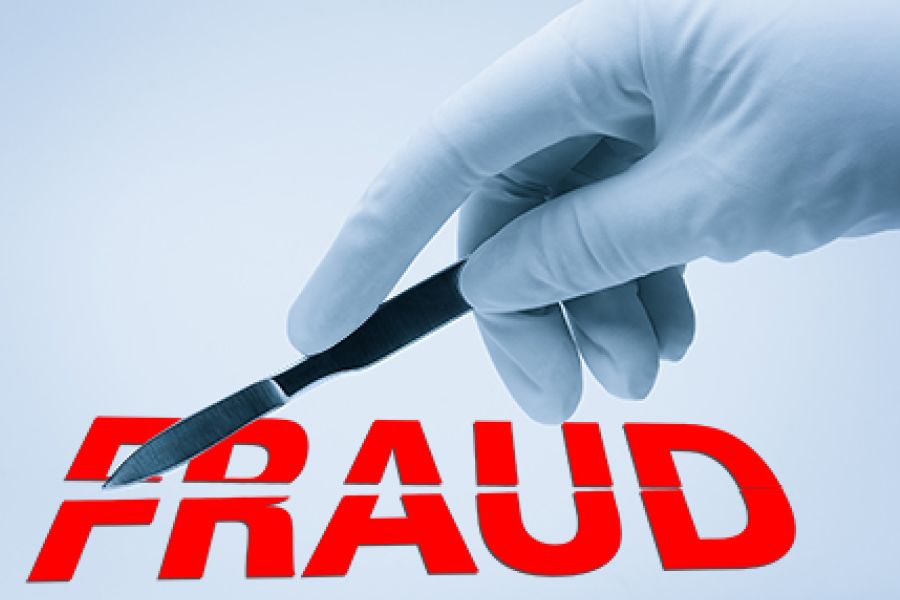Using data analysis to detect fraud is changing the way many businesses operate. It’s also changing how forensic accountants do their jobs, providing fraud experts with the means to mine massive mounds of data like never before. USING DATA ANALYSIS TO DETECT FRAUD: 3 TECHNIQUES These analytical techniques are among the most efficient and effective at detecting occupational fraud: (1) Association analysis This method can help identify suspicious relationships by quantifying the odds of a combination of data points occurring together. In other words, it calculates the likelihood that, if one data point occurs, another will, too. If the combination occurs at an atypical rate, a red flag goes up. For example, association analysis might find that a certain supervisor tends to be on duty when inventory theft occurs. (2)...

Kickbacks return a portion of the money exchanged in a business transaction as compensation for favorable treatment. They’re illegal in the United States and many other countries. Don't mistake kickbacks for gifts. Because kickbacks are often disguised as gifts, travel and entertainment, they can be hard to identify. Don't mistake kickbacks for gifts: intention of the gift-giver Gifts, gratuities or courtesies of modest value associated with ordinary business practices are usually acceptable. The key consideration is the intention of the giver. Your employees shouldn’t accept any gift offered with the intent to improperly influence business decisions — or that would give the impression of compromising the employee’s ability to act in the best interests of the company. The same integrity test should be applied in deciding whether to...
Despite the National Do Not Call registry and features such as caller ID, phone fraud is thriving in the mobile phone era. Using spoofed numbers — which appear to be connected to legitimate government offices and businesses or that resemble your own number — fraud perpetrators say anything and everything to try to steal your money. Recently, scammers have posed as Social Security officials to steal from unsuspecting consumers. Since January 2018, the Federal Trade Commission has received more than 63,000 reports about this scam. Only 3% of reporting call recipients lost money, but the losses total $16.6 million. Social Security phone scams: anatomy of a crime Here’s how the Social Security scheme works: Criminals call from spoofed phone numbers and tell consumers that their Social Security number has been...
One of the governing principles of the employee/employer relationship is that employees have a fiduciary duty to act in their employer’s interests. Undisclosed employee conflicts of interest can be a serious breach of this duty. In fact, when employees aren't on your side, companies often suffer financial consequences. Employee conflicts of interest: ignorance isn’t bliss Here’s a fictional example of a common conflict of interest: Matt is the manager of a manufacturing company’s purchasing department. He’s also part owner of a business that sells supplies to the manufacturer — a fact Matt hasn’t disclosed to his employer. And, in fact, Matt has personally profited from the business’s lucrative long-term contract with his employer. What makes this scenario a conflict of interest isn’t so much that Matt has profited...
According to the Association of Certified Fraud Examiners’ Report to the Nations: 2018 Global Study on Occupational Fraud and Abuse, organizations victimized by fraud lose a median $130,000. But construction companies, in particular, are even harder hit, with a median loss of $227,000. What can you do to protect your construction business? Adopt this construction company anti-fraud checklist. Construction Company Anti-Fraud Checklist: Ways to Tighten Controls An effective strategy for minimizing fraud is to tighten your internal controls. Make sure the following are part of your policies and procedures: Surprise audits and jobsite visits. These visits can not only help detect fraud, but also send a strong message that combating fraud is a priority — which is a powerful deterrent. Segregation of duties. Avoid situations in which one person...
To increase brand awareness and influence consumer behavior, businesses of all sizes spend vast amounts on social media marketing. Social media “influencers” can help companies reach and engage customers. But not all influencers operate above board. Here’s how to spot influencer fraud. And in so doing, avoid hiring or associating with a dishonest influencer. How to spot influencer fraud: The more, the better There’s no commonly accepted definition of how many followers an influencer must have to claim such status. But in general, the more, the better. After all, clients want access to as many eyes as possible. Knowing how important followers, likes and shares are, some influencers find it hard to resist the temptation to inflate their numbers. In general, they can command higher fees and attract...
Job applicants aren’t always honest on their résumés. As such, it's critical that you uncover bogus résumé claims. If you don’t investigate suspicious claims, you might end up hiring an unqualified and unethical employee — which could lead to financial, productivity and legal liability issues. The résumé fibber might also be more likely to commit occupational fraud. But how to uncover bogus résumé claims? Here are the three most common résumé falsifications. (1) Deceptive dates Whether to gloss over a termination, a period of job hopping or time spent out of the workforce, some job seekers “adjust” dates to make their employment history seem more consistent. Look closely at résumés that state employment dates in years, not months. Say an applicant claims she worked at her last job...
When people hear the term “forensic science,” they usually think “CSI.” What comes to mind when you hear the term “forensic accounting”? Similar to forensic scientists offering opinions about scientific matters, forensic accountants may be called on to investigate and serve as financial experts in commercial litigation. Here’s how. Who forensic accountants are Forensic accountants specialize in conducting fraud audits and investigations to detect irregularities and troubling trends, looking for both telltale and subtle signs of white collar crime. Certified fraud examiners (CFEs) are specially trained in fraud discovery, recognition, documentation and prevention. They’re also generally knowledgeable about human behavioral factors and motivations that contribute to the commission of fraud, such as the ability to rationalize fraudulent conduct. Often, forensic accountants are retained to detect misrepresentations of financial...
Preventing fraud in auto dealerships requires a strong internal control system. This will serve to prevent occupational fraud from cutting into your auto dealership’s profits and generating negative publicity. And effective controls start with current and accurate financial statements. Preventing fraud in auto dealerships starts in accounting One sign of weak internal controls is an accounting department that fails to generate financials until two or more weeks after month’s end. Accounting should post transactions daily, including new and used vehicle sales, repair orders, invoice payments, payroll and cash receipts. By 1 p.m. on any given day, you should have access to real-time checkbook balances and other accounting information effective as of 5 p.m. the day before. That way, you might be able to catch the first signs of...
In its 2018 Report to the Nations on Occupational Fraud and Abuse, the Association of Certified Fraud Examiners (ACFE) reported that owners and executives accounted for only 19% of all fraud cases. Yet they caused a median loss of $850,000, vs. a median of $100,000 for rank-and-file employees. As such, they post the greatest occupational fraud risk. Executive thieves get away with more because they have greater access to assets and can more easily override internal controls. Their schemes also tend to continue for longer periods before detection — an average of two years vs. one year for non-manager employee schemes. So it’s critical to spot the signs of executive occupational fraud risk and nab these high-placed thieves. Occupational Fraud Risk: Greater authority = greater damage Traditional preventive...











